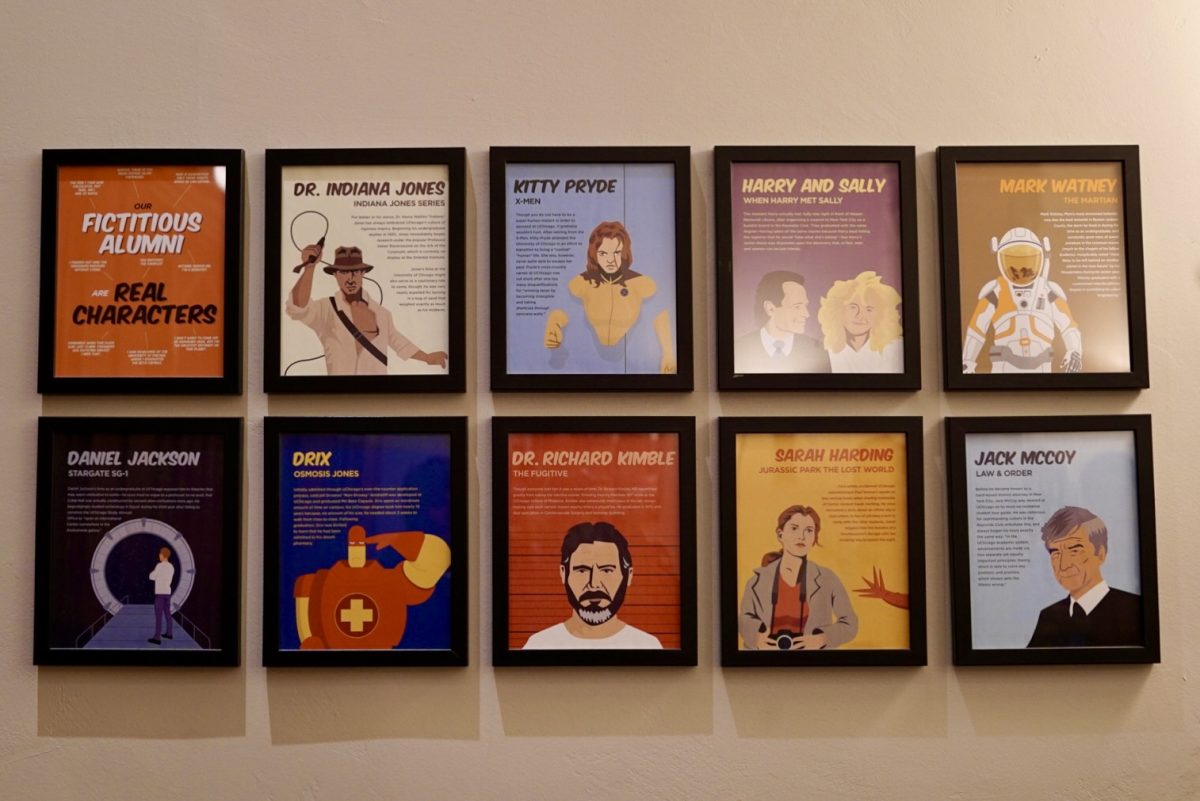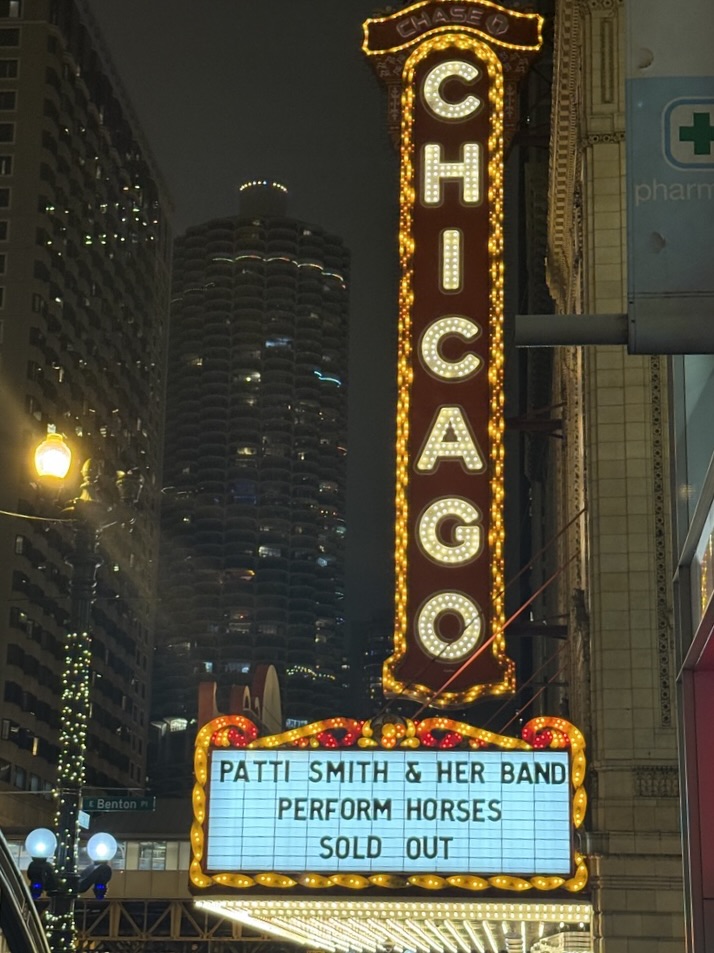I was thrilled at the end of last quarter when I heard that UT was putting on a production of Dylan Thomas’s seminal work Under Milk Wood (Friday and Saturday, 8 p.m., First Floor Theatre, Reynolds Club). I was apprehensive as well—terrified, even—to learn that it was going to be acted out. This may seem an odd thing to worry about during the production of a play—that it is to be acted—but the subtitle of Under Milk Wood is: “A Play for Voices.”
In other words, it is a play to be read aloud (perhaps over a radio, perhaps in some other setting). It is not originally intended for the stage. There aren’t any stage directions or characters entering and exiting—just a lump of dialogue, broken up into discrete units called characters. Two of the main characters are even “voices.” This is exactly how it was originally performed. Audio tracks of those performances (always with the author playing the largest parts) still exist and are wonderful.
After I saw Under Milk Wood acted out, I was torn. Much as I liked the performance—it was rather enjoyable—I wished the whole time to be actually reading the play. To put on a performance with actors is daring. I’m sure it’s been done before, but all the same, anytime you take a work out of its intended context—turning a book into a movie, say—something is inevitably changed. Sometimes it works, sometimes it fails. But credit should go where it is deserved: the entire assemblage of people involved should be applauded just for the brave undertaking.
On the whole, though, UT’s Under Milk Wood works quite well as a performance. My biggest concern was the acting, which requires that each person on stage seamlessly assume several different, disparate roles in order for the play to gel. By way of recounting the narrative, it is enough to say that the play traces the course of 24 hours in a small Welsh seaside town, beginning and ending at night. There are many characters (dead and alive, dreaming and awake), many separate storylines (sometimes long, elsewhere quite brief), but the central unity of the play is Milk Wood. This is one day in one town. The acting, then, has a lot of ground to cover, in order to give the impression of community on a small stage. And in places the acting was very, very good: John Frame as Captain Cat, for one, and Ethan Cooper as Reverend Eli Jenkins. Overall, the ensemble did well; they were solid throughout, and each held their own.
But here we begin a series of trade-offs. The presence of actual people embodying these roles provides a unique way to visualize and spatialize the play. But at the same time, with so many characters continously on stage, the effect was at times dizzying. It was difficult to decide where to look and what to listen to. There were rewards for the observant—notably Nogood Boyo masturbating in a corner. Yet even these visual highlights obscured what happened verbally. There is a real way in which it is much more pleasant to leave these scenes to one’s own imagination—to make pictures out of words, which tends towards the richer side of what the stage can actually pin down.
One trade-off came with the First and Second Voices, played by Sarah-Doe Osborne and Mark Winston, respectively. Each gave a good turn. In a nice touch by the director, Gemma Cooper-Novac, the Voices moved around the stage in close proximity to the scenes they were describing. This was, by all accounts, an excellent way to keep the focus directed; at the same time, I felt it drew too much attention on the voices as physical entities. At times, their gestures were distracting in a way I don’t expect from a “Voice.” In other words, the nuances that should rest in the verbal projection of these two characters came to the physical surface of the play, proving detrimental to varying degrees.
That verbal layer I spoke of just wasn’t communicated as strongly as I had hoped. Of all the plays in all the gin-joints in the world, Under Milk Wood might have the least discernible or relevant narrative. It also just might be the richest verbally. In richness, I mean rich like chocolate—not croissants. There are, to my mind, no endlessly moist layers to sort through and analyze and relish in this play, unlike what makes Shakespeare so wonderful. Instead, the play is more akin to one smooth, ceaselessly palatable tangle of words, words as sounds more than meanings. The play, aurally, is wonderful: we are introduced to a community beside a “sloe black, slow black, crow black fishing boat-bobbing sea” where the moles see poorly in the “snouting velvet dingles.” One may not find a great new insight during each return trip to this play, but the play will be just as enjoyable as the first time, every time. Each word is pleasant to the ear. The script is a web of the alliteration and pitch-perfect rhythm that form the most delectable aspect of Under Milk Wood.
The production particularly excelled in “country manners.” I had not remembered the play being so bawdy—so downright dirty in places the actors gestured. But this lent a nice current that flowed throughout, cropping up strongly in some places, softly in others. It gave, I should say, something of an identity to this seaside town. What perfectly lovable, sexual creatures!
There were very few things that I did not enjoy about this performance. I was fully impressed by the decision to retain—to the best of my knowledge—all of the text. In addition, the lack of an intermission kept the frenetic pacing of the performance exactly right. (This all led to a slight loss of momentum in the second half of the play, as well as some stumbled or forgotten lines, but this was a fair trade-off.) The only problem is that the concept of performing this play as such—while ever intriguing and equally beguiling—still rubs somewhere between my ulna and radius. I loved it, but felt out of place during the show. At times I just wanted to close my eyes and listen, just as the First Voice instructs from time to time.
So see the play if you like—it’s a good enough time to be worth the money and time commitment on a Friday or Saturday night. Or you could borrow this recommendation I have: take the $7 ticket price. Invest in a $4 used copy of the play from a used bookstore. Sink the remaining $3 in a cold beverage of your choice. Shake. Read the play aloud in a cozy, dark place, and listen to your own voice. It’ll be a blast, I promise.







